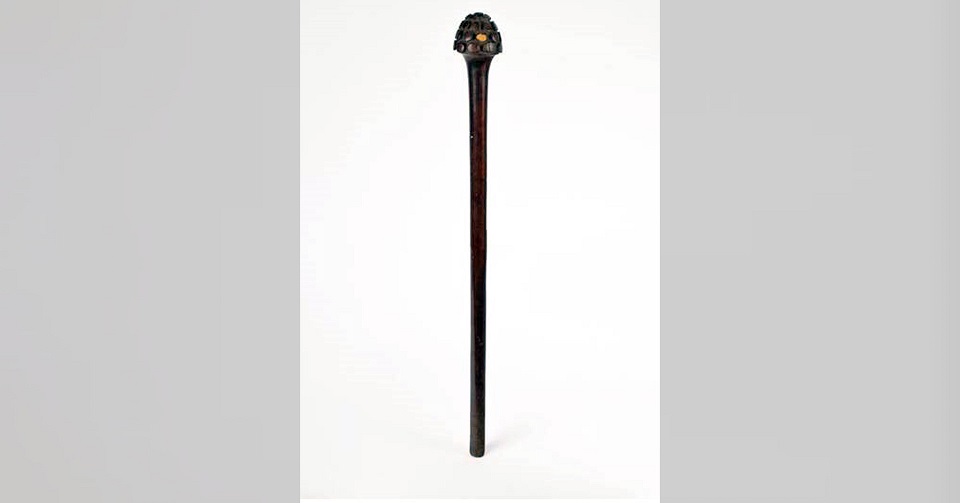In Gloucestershire, South West of England a 19th-Century Fijian bulibuli war club has been found by a family in their country home.
A statement stated the club is thought to have been acquired by prior generations of the current owner’s family.
War clubs were the primary weapons of choice for Fijian warriors, and each club was unique to the combatant. Many clubs served as status symbols, with lavishly adorned versions owned by leaders or priests to demonstrate their authority and hierarchy.
A club used to kill many foes was thought to have its own ‘life power’, or mana, which was stored in a temple dedicated to the Gods of War.
The war club found in Gloucestershire features a domed head with a series of carved flat protrusions inlaid with marine ivory and a carved handle.
This bulibuli specimen was referred to as a ‘striker’ or ‘crusher’ and was employed in a downward smashing motion.
They are sometimes combined with a i ula, which has a similar design.
Historians told tales of the severe wounds inflicted by battle clubs that were still visible on skulls in burial caves, and that some warriors survived the hard blows to live on for years with dramatically disfigured heads.
Werner Freundel, the director at Chorley’s auctioneers, said Fijian warriors were highly respected and the bulibuli club was a personally-tailored weapon.
“These were treasured possessions and important enough as cultural artefacts to be represented on the Fijian Coat of Arms,” Mr Freundel said.
“One occasionally finds these clubs in the collections of European nobility and with a British colonial history in Fiji, it is no surprise that they are occasionally found in the UK.”
Mr Fruendel said to have found such a fine example in Gloucestershire came as a little bit of a surprise and the family was excited when they were told about its rarity.



